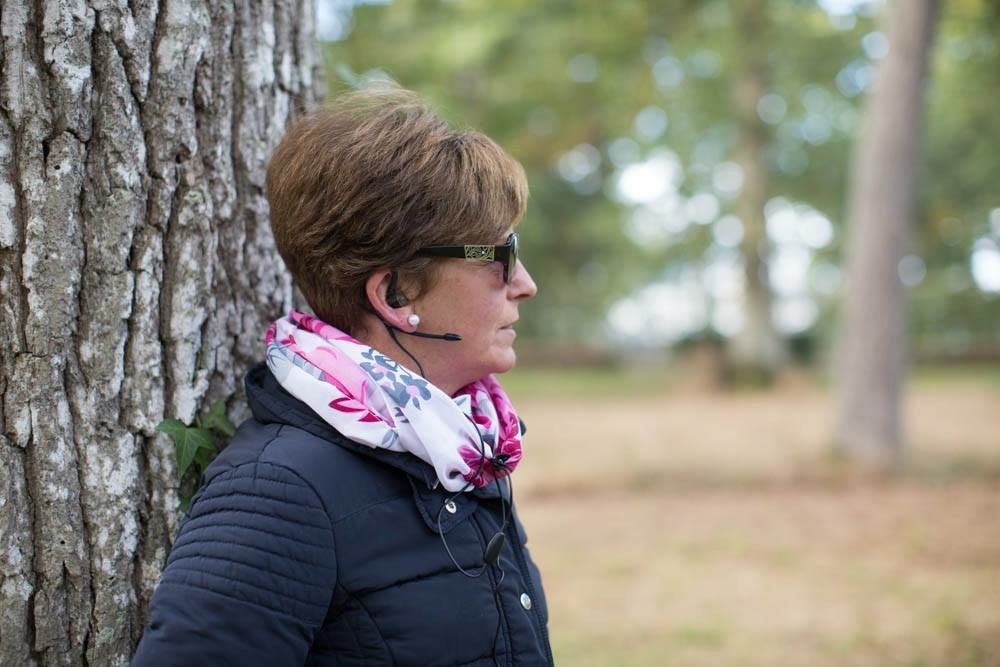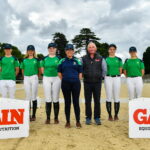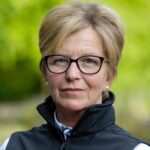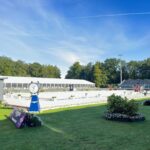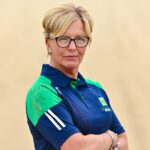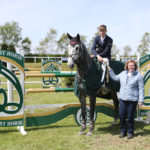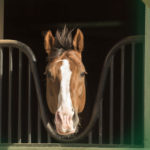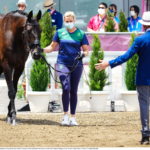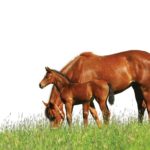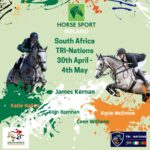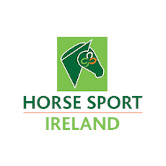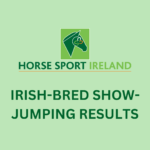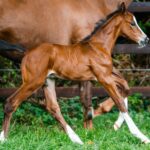International Women’s Day – High Performance Dressage Director Anne Marie Dunphy part 1
- 8 March 2024, 14:07
On International Women’s Day, we spoke to Horse Sport Ireland High Performance Dressage Director Anne Marie Dunphy on overseeing the youth High Performance programme, from developing athletes to her role as senior manager ahead of the Paris Olympics.
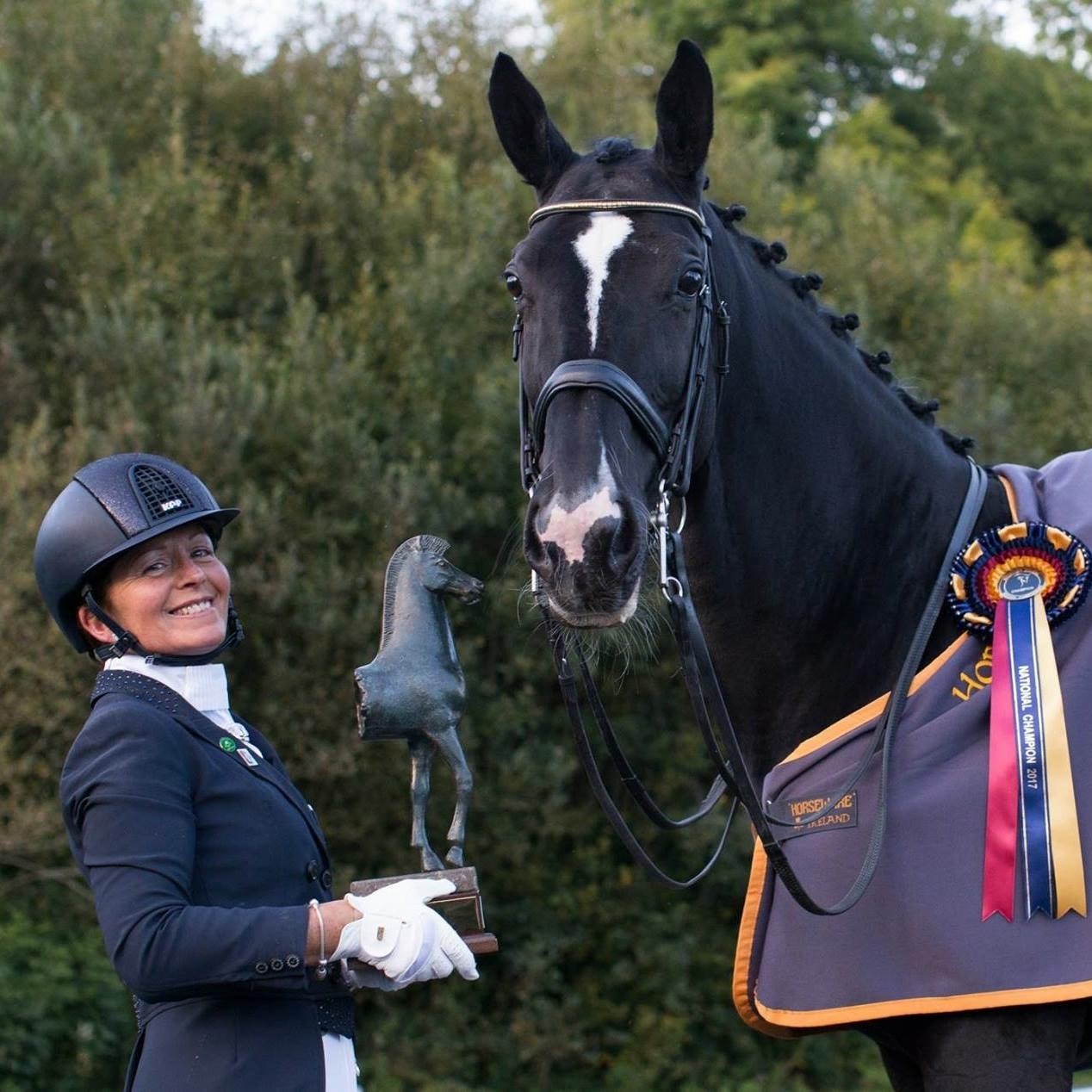
Anne Marie Dunphy with Urbanus after winning her second National Dressage Championship at Cavan Equestrian Centre in 2017. Photo: Alf Harvey
On February 21st, it became official – Ireland would be represented by an individual athlete in dressage at the Paris Olympics. Delight mixed with relief the overriding emotions.
‘The hard work starts now’ or ‘the real work starts now’ are throwaway phrases in situations like these, but it would be incredibly unfair to suggest that Horse Sport Ireland (HSI) High Performance Dressage Director Anne Marie Dunphy’s work really began that afternoon.
Since 2014 and the inception of the HSI Youth High Performance programme, Dunphy has been at the helm, guiding young athletes through international competition, moulding them into what she hopes will be stars of the future.
A decade in, the double Irish National Dressage champion and HSI Coach of the Year, will now oversee a tilt at the Summer Games this summer. There are hard decisions to make, and that individual slot is very much up for grabs – it is all to play for in the coming months before selection is made.
When Johann Hinnemann’s tenure concluded in 2023 and Dunphy was handed the reins, the was overwhelming support for the woman who has overseen the youth programme over 10 years, and the unanimous verdict among the dressage – and wider equestrian – community in Ireland was that Dunphy’s selection was utterly deserved. Irish Dressage High Performance is in safe hands, in the best hands.
“It was something that filled me with great pride, it was an honour to be asked to take over from Johann with the seniors,” says Dunphy.
“You know, along with coaching athletes, being involved with coach education brings another dimension to the sport. I heard a quote before that good coaches make good riders and good riders make good horses. I very much stand by that ideal.”
It hasn’t been the easiest transition into the hotseat of senior manager for Dunphy. A series of extremely unlucky events at the European Championships last year led to what she describes as a disappointing result for the team at Riesenbeck. Sorrell Klatsko’s horse Turbo was withdrawn on veterinary advice, before Judy Reynolds’ mount was bitten by an insect leading to a bad reaction, hampering their performance.
“A European Championships with just three leaves you with a steep hill to climb and then when Judy’s horse had the reaction it became that bit harder, continues Dunphy.
“There is no room for error at that level but I was really happy with how the team reacted, it showed me that there is a spirit and determination there and we took positives from it despite the result.
“At that point, while we didn’t achieve team qualification for Paris, the focus immediately shifted to obtaining an individual slot for Paris and the guys upped their performance to get us that slot and now that we have it, I’m excited and honoured to be going there with one of our athletes.”
There is a gritty determination to Dunphy, a blend of the old school and the new age. Her time as youth boss and her years of coaching all ages and all levels of athlete make her a fine role model for girls, young women and the more established among the group of riders.
Dressage athletes in Ireland are predominantly female, with of course plenty of men in the sport too, and her experience as a competitor with the success she has had throughout her career, coupled with her qualifications as a coach, mean that she is looked up to by all athletes.
A graduate of Equitation Science, she was a bit of an all-rounder. An amateur jockey early on, she worked in Flat yards and National Hunt yards, rode in amateur races, before jumping and eventing. It gave her an insight into training and producing horses at the highest level.
“I think those years working with thoroughbreds, as well as Sport Horses, gave me an understanding of the mental and physical side of the range of horses and it was really interesting to me,” she adds.
“Obviously racing transitioning to dressage isn’t the most conventional way of doing it and I kind of drifted into dressage. I had a very good thoroughbred actually that got me into dressage and I took it from there.
“Coaching too brought me more in the direction of the one discipline and I found that I was better at dressage than I maybe was at jumping. The sport guides you a bit and that’s something that I always say to young riders, to get that experience of all disciplines because it makes you a better all-round performer.
“You look at the likes of Oscar O’Connor, who has been on pony teams – he events to a high level, Laragh Byrne jumps too. It’s something I always encourage. I certainly found it made me a better horsewoman.
“Producing horses to a high level, and coaching, helping other people – when you have good horses and you’re having success in the saddle alongside coaching and guiding athletes, it helps build your profile and maybe people can see you as a bit of an inspiration.”
I interject as Dunphy rows back a bit, feeling like the word inspiration sounds cocky to describe herself as one – that is the measure of the woman – but it’s a fair assessment of her talents in and out of the saddle.
Twice National Champion and as supremo of the youth programme , she has every right to be described as inspirational. A strong, fair and measured operator with a steely mindset, female equestrians can aspire to be just like her. Being a high performer, athletes give you that respect.
“Producing a horse from a young age through the ranks, taking them on that journey to be able to get the most out of them as an older horse, that’s great for any rider. It’s the same for coaching – to be able to develop a rider, help improve them and bring them through the ranks to international level, that’s something to gives an incredible sense of achievement and it’s what gives me the passion for the sport, to be able to see riders and horse improve. I love it.
“The whole thing with equestrian sports, it’s all about the partnership. You treat them individually and develop them individually, it’s why I always encourage our young riders to jump and event and even hunt, it gives them that increased capability – makes them a better all-round athlete.
“What we’ve achieved with the youth programme – to have been able to get the riders through to international level and championship level – you know, it’s very fulfilling and it’s a great source of pride.
“What’s nearly more rewarding now is seeing some of them progress to senior level, and that’s starting to happen now, to give the kids now when they’re young, the education and basic training – that gives them the experience and the tools to motivate them. And more importantly, it gives them the tools to produce horses to a higher level and to go on in the sport because that is just as important, if not more important.
“What they experience then, it really sets them up if they want a career in the sport – because senior high performance at senior level is not easy – there are highs but also lows, and that experience sets them up for that.
“And if you talk to some senior riders, they’d tell you how daunting it is at senior level at their first championships – so for us to give these kids a taste and experience of what it’s like prepares them for what is to come down the line.”
The Youth High Performance programme is now in the best place it has ever been, with promising combinations coming through the ranks.
“It is, for sure – that, for me, is the biggest reward from the youth programme, seeing them get that experience of Championships and getting the tools that they need to bring them through to senior level. Those youth riders now will be closer to an Olympics in four years time at Los Angeles, and in eight years’ time at Brisbane, they’ll certainly be in the mix.”
END OF PART 1
Related news stories
HSI Active Accredited Coaches Blog Series – Anne Marie Dunphy
- Popular

- Latest

Irish Young Riders in action at the TRI Nations in South Africa
Update on new Advisory Forums and Director appointments process








